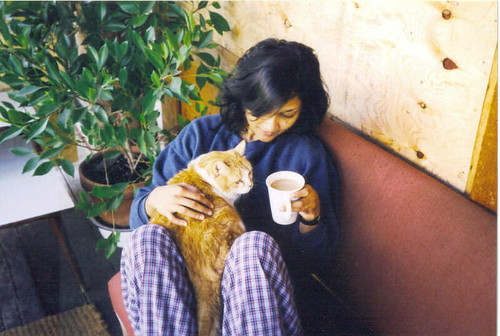The World Is Flat
 While waiting for the arrival of Book 2 of A Song of Ice and Fire at my local library, a series that I started reading a while back, I decided to find something else to keep me occupied.
While waiting for the arrival of Book 2 of A Song of Ice and Fire at my local library, a series that I started reading a while back, I decided to find something else to keep me occupied.I picked up The World Is Flat by Thomas Friedman as it was readily available at the library.
The premise is simple: changing and emerging technologies are making the world a small ("flat") place.
This book aroused my curiosity for two reasons:
- Outsourcing is a hot topic. IT industry is changing rapidly as a result of this. My company has outsourced some work to a company in Bangalore (laying off the local employees who were doing those jobs)
- IT outsourcing primarily involves India, and being a person of Indian origin, I am curious about what all this means in the near future
There is a lot of anecdotes about meeting Indian CEOs and high-tech workers. The India presented in this book - golf courses and luxury hotels - is not quite the India I visit. People are still poor. And, the divide between the rich and poor has considerably increased. There is a new crop of nouveau riche, young, educated workers who are working for many US firms as a result of outsourcing. Not until the final chapters does the book mention the fact that India is still fighting the war against poverty. And outsourcing doesn't seem to be helping that war.
The book seemed monotonous, repetitive and shallow. Global economy is oversimplified. Or rather, I chose the wrong book probably to get a thought-provoking, meaningful, sincere look at the current trends in globalization and outsourcing, presenting both pros and cons. This book just endorses one flat view. Banal statements such as these are repeated ad nauseam:
Change is hard. Change is hardest on those caught by surprise. Change is hardest on those who have difficulty changing too. But change is natural; change is not new; change is important.The compelling reason behind outsourcing - viz., cutting costs and showing greater profits - somehow serves as a justification for it. It is all wonderful that the technology allows collaboration between individuals living in Singapore, US, India, Japan and Australia. I am quite awed by it, despite being in IT. But, it also cuts too close to home, having lost a previous job to outsourcing.
Work gets done where it can be done most effectively and efficiently.Sounds like sweat shops are entirely justified and should be promoted, based on this line of thinking.
...
It helps because it frees people and capital to do different, more sophisticated work, and it helps because it gives an opportunity to produce the end product more cheaply, benefiting customers even as it helps the corporation.
It is amazing how such an incredibly long book manages to say nothing of importance. As I kept plodding through the chapters, I was appalled by the lack of in-depth research, and the flattening (to quote the term used excessively in the book) of an issue that is multi-faceted, to say the least.
The typecasting of certain countries and ethnic groups seemed to lack understanding of cultures and history. However, it was heartening to note that Nayan Chanda, editor of YaleGlobal Online, pointed out to the author that it was the Arab-Muslim world that gave birth to algebra and algorithms, terms both derived from Arabic words.
One of the first slides I used to put up when teaching Introduction to Algorithms class was about al-Kwarizmi: a great mathematician whose most recognized work, one that is named after him, being the mathematical concept Algorithm.
One simplistic theory presented in this book sounded interesting, yet flat:
The Dell Theory stipulates: No two countries that are both part of a major global supply chain, like Dell’s, will ever fight a war against each other as long as they are both part of the same global supply chain.I am not sure what to make of this puerile anecdote:
A South Asian Muslim friend of mine once told this story: his Indian Muslim family split in 1948, with half going to Pakistan and half staying in Mumbai. When he got older, he asked his father one day why the Indian half of the family seemed to be doing better than the Pakistani half. His father said to him,"Son, when a Muslim grows up in India and he sees a man living in a big mansion high on a hill, he says, 'Father, one day, I will be that man.' And when a Muslim grows up in Pakistan and sees a man living in a big mansion high on a hill, he says, 'Father, one day I will kill that man.'"I have quit part-way through non-fiction books that were tedious and immature in their treatment of the subject matter. But, I wanted to finish this book just to make sure I had not jumped to a wrong conclusion too early on. And I hadn't: the book was quite a waste of my time.
One statement I agreed with towards the end of the book is:
The flattening of the world is too young for us to draw any definitive conclusions.
Labels: book review, friedman, non-fiction, world is flat


0 Comments:
Post a Comment
<< Home